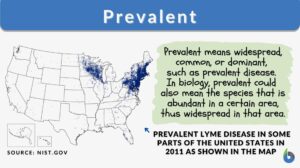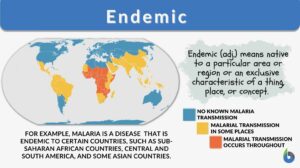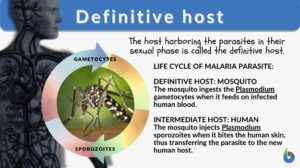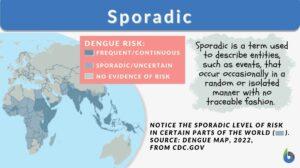Search Results for: epidemiology
Epidemiology
Epidemiology (Science: study) The study of the distribution and determinants of health-related states and events in... Read More
Reservoir host
Reservoir Host Definition A reservoir host is a host that harbors the pathogen and serves as a source of the infective... Read More
Incubation period
Incubation Period Definition The incubation period is the time duration between exposure to the pathogen and the appearance... Read More
Basic & Clinical Biostatistics (LANGE Basic Science)
Basic & Clinical Biostatistics (LANGE Basic Science) ... Read More
Definitive host
Different Biological Relationships The biological world is interconnected whether we notice it or not. All the life forms... Read More
Population pyramid
population pyramid (Science: epidemiology) graphical representation of the age and sex composition of a population,... Read More
The consequences of antibiotic use in horticulture
Leading articlesFrederick R. Falkiner* Department of Clinical Microbiology, Trinity College, Dublin; Central Pathology... Read More
Population characteristics
population characteristics (Science: epidemiology) Qualities and characterization of various types of populations within a... Read More
Color Atlas & Synopsis of Clinical Dermatology
Color Atlas & Synopsis of Clinical Dermatology ... Read More
Susceptible
Resistance, vulnerability, sensitivity, tolerance, and susceptibility are some highly important terminologies across the... Read More
Parasitism
Organisms depend on different sources of food to survive. Larger organisms like plants make their own food (autotrophs) and... Read More
Population density
population density (Science: epidemiology) number of individuals in a population relative to... Read More
Bayes theorem
Bayes theorem a theorem in probability theory named for thomas bayes (1702-1761). In epidemiology, it is used to obtain the... Read More
Direct life cycle
Direct life cycle (Science: epidemiology) a life cycle in which a parasite is transmitted directly from one host to the next... Read More
The Psychobiology of Hysteria
EditorialHysteria is often regarded as the archetypal psychodynamic illness. Freud carried out much of his early work on... Read More
Population genetics
Population genetics (Science: epidemiology, genetics) The study of genetic influences on the components of cause and effect... Read More
Microparasites
Microparasites (Science: epidemiology) Typically, viruses, bacteria, fungi and protozoa. More generally, parasites that... Read More
Subclinical infection
subclinical infection (Science: epidemiology) An infection in which symptoms are sufficiently mild or inapparent to escape... Read More
Cross-sectional study
Cross-sectional study (Science: epidemiology) a study in which the presence or absence of disease or other health-related... Read More
















![Biology n., [baɪˈɑlədʒi] Definition: scientific study of life](https://www.biologyonline.com/wp-content/uploads/2021/12/biology-definition-and-branches-of-biology-300x168.jpg)